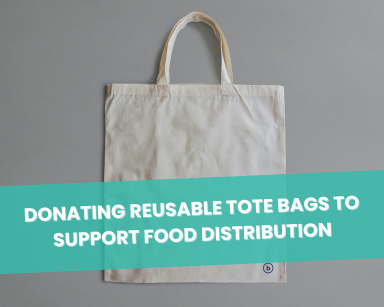A Comprehensive Guide on Donation Tax Deduction Calculators and Charity Work
In the American ethos, charitable endeavors have always played a pivotal role in promoting community growth and cementing a sense of social responsibility. In 2020, an astonishing $471.44 billion was generously donated to charities in the USA, illustrating the nation’s commitment to betterment. But beyond the immediate benefits, understanding the extensive advantages of charity, including its economic impetus, is crucial. With businesses increasingly recognizing the economic benefits of charitable contributions, the use of tax deduction calculators has become indispensable in optimizing these charitable acts. This tool not only aids businesses in navigating their financial contributions but also underlines the significant domino effect of charity, highlighting its far-reaching impact on economic development, societal integration, and progress in education and research.
Table of Contents
The Domino Effect of Charity
Understanding the ripple effects of charity gives us a broader perspective. Every act of donation, every dollar given to charity, generates a cycle of benefits, including:
- Economic Development: Charities often employ local individuals, boosting employment rates and fostering economic growth.
- Social Integration: Charity work often supports marginalized groups, promoting social inclusion and cohesion.
- Education and Research: Many charities fund education and research programs, contributing to advancements in various fields.
Remember, donations are not only beneficial for the immediate cause – they have a much broader impact!
Business Contributions: Expanding the Scope of Donations
Donation is not just about money. They can take many forms. From waste materials to overstocked items, businesses have a multitude of resources that can be repurposed and given new life through donation. These acts of generosity go beyond monetary value. They reduce landfill waste, improve a business’s ESG score, and enhance its reputation as a socially responsible entity.
Here are a few types of items businesses commonly donate:
- Overstocked Items
- Unused Office Supplies
- Electronic Devices
- Unwanted Furniture
Turning Waste into Wealth with Donation
Every business accumulates waste—materials that are no longer useful for their primary operations. But one company’s trash could be another’s treasure. Donation can be a method of waste management that not only minimizes environmental damage but also brings importance to others. Examples of such donation can be:
- Excess Inventory: Overstocked goods can be donated to charity organizations that can distribute them to those in need.
- Outdated Electronics: Old computers, printers, or other electronic devices can find new life with charities that refurbish and distribute them.
- Unused Office Supplies: From unused stationery to office furniture, these items can be of significant use to local schools or other community organizations.
The Financial Upside of Charity Work: Tax Deductions
Engaging in charity work has financial benefits as well. Businesses can enjoy tax deductions for their charitable contributions, thereby reducing their tax liability. Understanding how to calculate these deductions is crucial. Using a deduction calculator simplifies this process, providing businesses with an easy way to estimate their potential savings from donation.
Amplifying Value with Happen Ventures
At Happen Ventures, we understand the value of giving. We help businesses streamline their donation process, guiding them every step of the way. From identifying potential donation items to organizing the logistics, we make it easier for businesses to contribute to their communities. Furthermore, our commitment to reducing landfill waste and boosting ESG scores sets us apart.
Using a Donation Tax Deduction Calculator: A Step-by-Step Guide
The tax deduction calculators are an invaluable tool for businesses aiming to make the most out of their charitable contributions. Here’s a simple guide to using a deduction calculator:
- Enter the type and quantity of donation
- Provide the fair market value of the donation
- Input your business’s bracket
- The calculator will then estimate the potential tax deduction
Optimizing Tax Deductions with Strategic Donation
While using a tax deduction calculator is a great first step, it’s important to understand the strategies that can help businesses optimize their tax deductions. Here are a few tips:
- Understand the IRS Rules: The IRS has specific guidelines regarding what qualifies as a charitable contribution. Make sure to check these before making a donation.
- Keep Thorough Records: To claim a deduction, businesses must provide detailed records of their donation processes.
- Appraise High-Value Donation: For high-value donation, such as property or artwork, consider getting a formal appraisal to determine the amount.
By understanding these nuances and leveraging a deduction calculator, businesses can optimize their tax savings while contributing to their community.
Recognition of Charitable Work
In addition to the tangible financial savings through tax deductions, charity work provides businesses with intangible benefits. It strengthens relationships with the community, enhances a business’s reputation, and contributes to the overall societal good.
The long-term benefits of maintaining active donation practices are immense and should not be underestimated. Thus, charity work is not just a financial strategy, but a fine proposition that pays dividends in the form of goodwill and public trust.
Final Thoughts
In conclusion, engaging in charity work and making use of donation tax deduction calculators can be a game-changer for businesses. It is not just about reducing tax liability or enhancing ESG scores, but also about cultivating a socially responsible brand image that resonates with customers, employees, and stakeholders. After all, giving back is not just good for the community, it’s good for business too.










